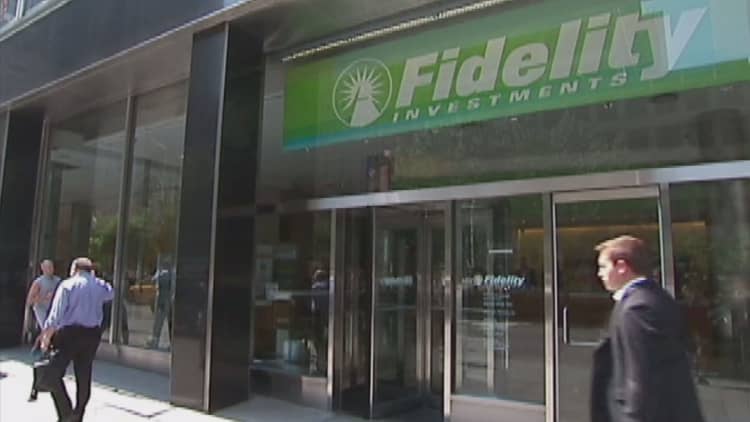
Fidelity, the Boston-based financial group, has been meeting with politicians and White House officials to urge action over high student debt in the US, as lawmakers consider ways to encourage employers to play a bigger role.
The company earlier this year began offering up to $2,000 per year to its employees for the repayment of student loans but, unlike pension contributions, the money is subject to income tax, making it a less attractive benefit.
More from the Financial Times:
Trump loses his shine in Pennsylvania
The return of American exceptionalism
Clinton targets Trump on Republican turf
Bills introduced in Congress last year that aimed to create an income-tax break have so far not gained traction, but Fidelity lobbyists believe that the new Congress that emerges from November's elections could be more amenable to tax reform. Tax breaks for student loan repayments could be included in such a package.
Other ideas under discussion include government IT improvements to simplify payroll deductions.
Fidelity continues to educate policymakers who can further policies that empower student loan borrowers to improve their financial lives.Company spokesman
The student debt mountain in the US has almost tripled in a decade to $1.3tn. Fidelity, which is the largest administrator of defined contribution pension plans in the US, and one of the largest brokers and managers of mutual funds, hopes to gain from policy action because the sooner graduates pay down their loans, the sooner they are likely to start investing and save for their retirement.
Only a small fraction of employers offer student loan repayment as a benefit, but the number is growing. PwC, the consulting firm, began offering student loan paydowns last year, and Aetna, the health insurer, announced a similar plan last week, suggesting companies increasingly see it as a potent recruiting tool.
"By helping ease their financial burden, our employees can better focus on our mission of building a healthier world," Mark Bertolini, Aetna chief executive, said last week.
Fidelity officials in Washington briefed White House staff in recent weeks, and have also been pushing to influence staff on the Hillary Clinton and Donald Trump presidential campaigns, according to people familiar with the contacts.
"Fidelity continues to educate policymakers who can further policies that empower student loan borrowers to improve their financial lives," the company said.
Mrs. Clinton's higher education policy platform includes a promise to "explore further options to encourage employers to help pay down student debt," while Mr. Trump has said he will unveil student funding policies soon.
One in three participants in Fidelity's retirement savings plans has student debt, it says, and 80 percent said it affected their ability to save for retirement, according to a survey Fidelity published in June.
Figures released last week by the New York Federal Reserve showed that delinquencies on student debt remained a stubborn problem, even while Americans were dealing better with mortgage payments and other household debts. The share of student loan balances that are 90 or more days overdue held at above 11 per cent in the second quarter of 2016 for the eighth quarter in a row.
Correction: An earlier version of this story stated that Fidelity was lobbying for employer loan repayments to be tax deductible. The company says it has not taken a position on policy changes.

